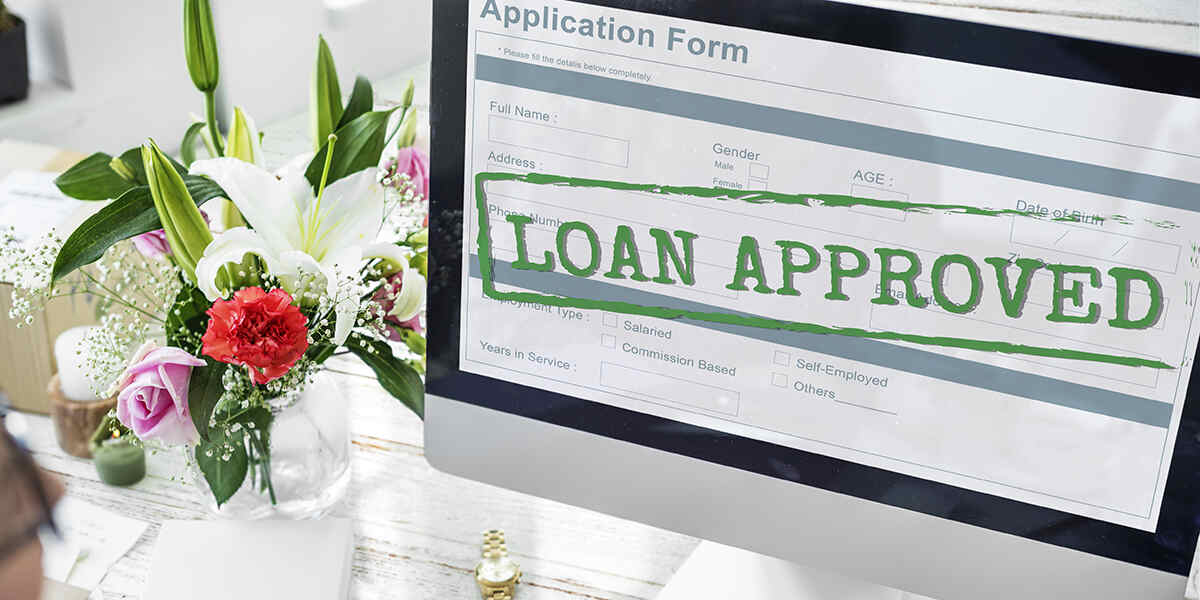Obtaining a mortgage can seem intricate, but having the appropriate documents simplifies the process. This checklist will assist you in collecting everything required for a seamless mortgage application. Being ready allows you to collaborate with your lender and demonstrate your preparedness to manage a mortgage. From income details to credit information, every document is important. Here’s a breakdown of what you need to initiate your journey to owning a home.
Understanding the Mortgage Process
Navigating the mortgage process effectively involves several steps, including understanding a credit score and preparing supporting documents. A mortgage lender will closely examine credit reports to assess credit scores, which can influence the type of loan program, such as an FHA loan or a conventional loan, offered to the borrower. Individuals should gather documents like tax returns and bank statements. For those who are self-employed, having detailed profit and loss statements is important.
Being aware of common mistakes, like not providing a letter of explanation for credit issues, can help streamline the mortgage application process and avoid delays. An individual should also ensure that they understand the down payment requirements, as this can affect monthly mortgage payments.
What You Likely Need Before Applying
Personal Identification
When applying for a home loan, individuals must provide specific personal identification documents, such as a government-issued ID and a Social Security card. These documents assist the mortgage lender in confirming the individual’s identity and address, which are important for processing mortgage applications. The identification should be clear and valid, ensuring the lender can verify the applicant’s information in their credit report.
Along with identification, supporting documents like recent bank statements, tax returns, and proof of income from self-employment will be needed to demonstrate financial responsibility. If the individual receives a down payment as a gift, they may also need to provide a letter of explanation regarding the source of those funds. Understanding credit scores and their implications on mortgage options—like FHA loans or conventional loans—can help the individual choose the right loan program based on their financial situation.
Income Verification
When verifying income for a home loan, individuals must provide various supporting documents that show their financial situation. They typically need to gather recent pay stubs, W-2 forms from the last two years, and bank statements. Self-employed individuals must supply tax returns and profit and loss statements. An individual’s job status matters. Mortgage lenders often check job stability by confirming how long someone has been employed or self-employed.
For those self-employed, a lender might request a letter of explanation to clarify income sources and stability.
Additionally, self-employed borrowers can show income through bank statements and brokerage account statements to demonstrate cash flow. All these details help lenders assess credit scores and determine the best loan program, such as an FHA loan or a conventional loan, which will influence how much the borrower can afford for a down payment and what their mortgage payment might be.
Credit History
An individual’s credit history significantly impacts their ability to secure a mortgage loan. The lender reviews the credit report to check the credit score, which reflects payment history and current debts. This information helps the lender determine if the borrower qualifies for different loan programs, like an FHA loan or a conventional loan, influencing the interest rate and down payment options.
Lenders typically examine tax returns, bank statements, and overall credit scores to assess financial stability. To improve their credit history, individuals can pay off past-due accounts, lower high account balances, and ensure accurate information on their credit report. If there are credit issues, a letter of explanation can clarify concerns for the lender. Self-employed applicants should maintain clear financial records and consider documenting income through brokerage accounts.
By enhancing their credit score, borrowers can boost their chances of obtaining better mortgage payment terms and making successful applications.
Essential Documents for Your Application
Tax Returns
The applicant needs to provide their individual tax returns for the last two years as part of the mortgage application. These tax returns help the mortgage lender assess financial stability, showing income and any deductions that can affect loan eligibility. A steady income over time is important, especially for self-employed applicants, who also need to include profit and loss statements.
If the applicant’s tax returns raise any concerns, the lender may ask for a letter of explanation to clarify any discrepancies.
Additionally, the applicant should be prepared to present supporting documents like bank statements and brokerage account statements to further illustrate their financial position. Having this information organized can help simplify the mortgage process and improve approval chances for various loan programs, including FHA and conventional loans.
Bank Statements
When applying for a mortgage, applicants should closely review their bank statements to identify income sources and any significant deposits that may require clarification. Lenders will assess regular deposits to validate consistent income, particularly for self-employed individuals who need to demonstrate their financial activity.
Inconsistencies, such as sudden large withdrawals or unexpected deposits, may trigger concerns for the lender, leading to a request for an explanation letter to address these issues. Generally, lenders ask for bank statements from the past two months to verify that the applicant’s financial situation matches their reported credit score and credit report. Having these documents, alongside recent tax returns, is important for confirming that the individual can manage the expected mortgage payment. This careful examination can influence the ability to qualify for either a conventional loan or an FHA loan, impacting the selected loan program and down payment.
Employment Verification Letter
An Employment Verification Letter should include the applicant’s job title, dates of employment, and salary. This information aids the mortgage lender in assessing the applicant’s financial stability and ability to afford mortgage payments. To ensure proper formatting, it should be on company letterhead, signed by a manager or HR representative, and include contact information for the employer.
If the employer cannot provide the letter on time, the applicant can request a letter of explanation to inform the lender of the situation, including details about the employer’s delay.
Additionally, applicants who are self-employed should prepare supporting documents such as tax returns and bank statements to demonstrate their income. This can especially assist lenders considering FHA loans or conventional loans, where credit scores and paperwork are significant in the approval process. Having information about any brokerage accounts can further enhance the application, providing a complete view of the applicant’s financial situation.
Your Mortgage Loan Checklist for a Smooth Process
Down Payment Amount
Determining the down payment amount is significant for anyone applying for a home loan. A typical down payment can range from 3% to 20% of the home’s purchase price. The amount allocated impacts the mortgage lender’s decision and affects monthly payments. If a person decides to put down less than 20%, they might face higher mortgage insurance costs, which raise overall expenses.
It’s also important to understand that larger down payments can lead to better loan terms, such as lower interest rates. Individuals should examine their credit scores and credit reports carefully, as these factors influence available loan programs. Tax returns and supporting documents, including recent bank statements and brokerage account information, help lenders assess financial stability. Some may even explore options like an FHA loan with lower down payment requirements or conventional loans for those with higher credits.
Additionally, researching any down payment assistance programs can aid in covering costs. If needed, a letter of explanation may clarify financial situations to the lender.
Property Appraisal Reports
A property appraisal report assesses various factors to estimate a property’s value, including its condition, size, and location. It aids mortgage lenders in determining how much to lend for a home loan. If the appraisal value falls short of expectations, it can complicate matters for the applicant. This may prompt the lender to request a larger down payment or even decline the mortgage application.
To prevent complications, applicants should prepare by tidying the property and making small repairs. Collecting supporting documents like bank statements and tax returns beforehand is also wise. If there are any concerns, a letter of explanation can clarify discrepancies. Being aware of the current credit score is also important, as favorable credit scores could lead to better loan options, whether it’s an FHA loan or a conventional loan.
Additionally, self-employed applicants might need to provide extra documents such as brokerage account statements. Adequate preparation can contribute to an accurate appraisal and a seamless mortgage application process.
Loan Estimate and Closing Costs
Individuals should look for details such as estimated closing costs, interest rates, and monthly mortgage payments in their Loan Estimate. By reviewing these figures, they can understand the total amount due at closing. To compare different Loan Estimates, borrowers can focus on the annual percentage rate (APR) and all fees outlined in each document. This helps them identify the most favorable loan program and terms.
Common closing costs include lender fees, appraisal charges, and title insurance. Supporting documents like tax returns, bank statements, and credit reports will help the mortgage lender assess the borrower’s finances. If a borrower is self-employed, they might need to provide additional income verification. Borrowers should also keep an eye on their credit scores, as these can affect loan approval and costs. If they encounter surprises, a letter of explanation can clarify any discrepancies in their credit report.
For those considering an FHA loan or a conventional loan, understanding closing costs is necessary for budgeting the down payment and overall expenses associated with obtaining a home loan.
Considering Real Estate Options
When looking at real estate options, individuals should assess their financial situation, including their credit score and income stability. Gathering supporting documents like tax returns and bank statements is beneficial for determining how much they can afford in mortgage payments. Buyers should explore different loan programs, such as an FHA loan for those with lower credit scores or a conventional loan for higher-income individuals.
It’s wise to review monthly costs associated with the property, including maintenance and taxes, to ensure they align with long-term financial goals. A brokerage account may provide insights into investment opportunities. If there are credit issues, a letter of explanation detailing past problems could help alleviate concerns with the mortgage lender.
Comparing properties requires access to organized information and awareness of one’s lifestyle needs, ensuring that the chosen home fits well into their overall life plans, thereby making a sound investment for the future.
Common Mistakes to Avoid
Many individuals often overlook reviewing their credit report before applying for a home loan. This can lead to surprises, as mistakes or inaccuracies may lower their credit score and affect mortgage rates.
Additionally, failing to gather all supporting documents, like bank statements and tax returns, can slow down the process, making it harder to meet deadlines. Missing documents may prolong the underwriting stage and potentially result in a rejection of the mortgage application. Lastly, inadequate preparation for the final steps can create issues that could delay closing or increase costs.
For example, if a borrower does not provide a letter of explanation regarding any blemishes on their credit report, the lender might question their reliability. If they intend to apply for an FHA loan or a conventional loan, having everything in order is important. This includes organizing their brokerage accounts, verifying down payment sources, and ensuring all necessary details are ready for review by the mortgage lender.
Final Steps Before Closing
Understanding Mortgage Terms
Understanding mortgage terms involves grasping components like credit scores, down payments, and supporting documents. A mortgage lender usually checks a borrower’s credit report and credit scores to assess their reliability. When applying for a home loan, individuals often need to provide bank statements, tax returns, and documentation proving their income, especially if self-employed.
A significant step is to consider the loan program chosen; FHA loans may allow for lower credit scores and smaller down payments compared to conventional loans. Interest rates also matter; fixed rates keep payments steady, while adjustable rates can lead to higher costs over time. Terms like principal (the loan amount), interest (the cost of borrowing), escrow (fund set aside for taxes and insurance), and amortization (schedule for loan pay-off) are important in agreements. Creating a letter of explanation may help clarify any credit issues before lenders approve mortgage applications.
Understanding these terms ensures borrowers make informed decisions for their future mortgage payments.
FAQ
What documents do I need to prepare for my mortgage loan application?
Prepare your last two pay stubs, W-2 forms for the past two years, bank statements for the last two months, and tax returns for the previous two years. Additionally, gather proof of identity, such as a driver’s license or passport.
How can I determine the right loan amount for my needs?
Evaluate your financial needs by listing expenses (e.g., home purchase, education, or business). Calculate your monthly budget to determine repayment capacity. Use online loan calculators to explore scenarios. Aim for a loan amount that ensures manageable payments, ideally 30% or less of your monthly income.
What steps can I take to improve my credit score before applying for a mortgage?
Pay off outstanding debts, reduce your credit utilization ratio to below 30%, check your credit report for errors, and make all payments on time. Additionally, avoid opening new credit accounts before applying for a mortgage.
What should I expect during the mortgage loan underwriting process?
During underwriting, expect document requests for income, assets, and credit history. Be ready to provide pay stubs, bank statements, and tax returns. Respond quickly to any inquiries and clarify any discrepancies to streamline the process. Regularly check in with your loan officer for updates.
How can I ensure a smooth closing process for my mortgage loan?
To ensure a smooth mortgage closing, gather all necessary documents early, such as pay stubs and tax returns. Communicate regularly with your lender, and consider a final walkthrough of the property. Be prepared to address any issues promptly to avoid delays.
Ensure a smooth mortgage process with our comprehensive checklist. Contact Champions Mortgage today for expert guidance and all the essentials you need to navigate your loan application confidently. Let’s make your path to homeownership seamless!







